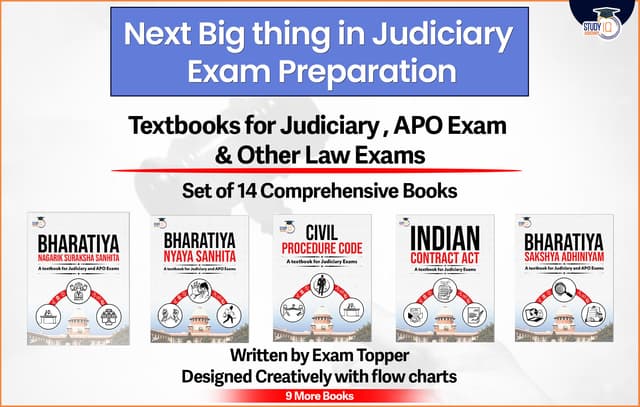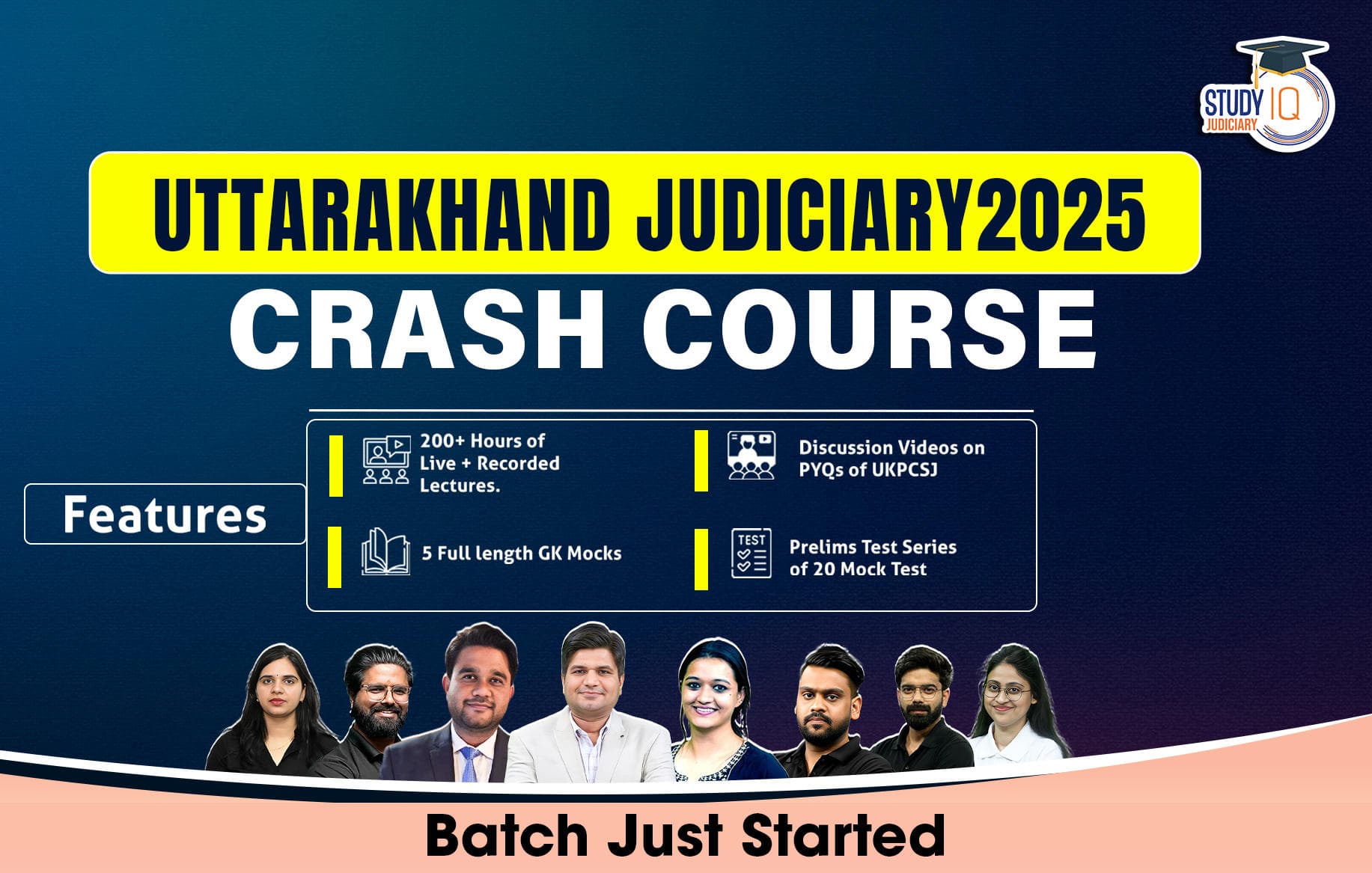Table of Contents
The Constitution of India transcends a mere legal document; it serves as the moral and ideological guide of a nation that arose from centuries of colonial subjugation and a passionate quest for freedom. The Preamble encapsulates the fundamental principles of Justice, Liberty, Equality, and Fraternity, which constitute the foundation of the Indian Republic. Socialism and secularism serve as dual foundations that characterise the framework and essence of Indian democracy.
The incorporation of the terms “socialist” and “secular” in the Preamble by the 42nd Constitutional Amendment Act of 1976, during the Emergency, has frequently been a topic of political and ideological dispute. Reducing these principles to simple linguistic insertions or political methods overlooks their profound integration within the Constitution’s Fundamental Rights, Directive Principles of State Policy, and Basic Structure Doctrine.
Socialism in the Indian Constitution
1. Constitutional Framework
- The term “socialist“ was incorporated into the Preamble through the 42nd Amendment; however, its fundamental core has been inherent in the Constitution since its foundation.
- The socialist worldview is clearly articulated in the Directive Principles of State Policy (Part IV), especially in:
- Article 38: Obliging the state to enhance the welfare of the populace by establishing a social order infused with justice, social, economic, and political.
- Article 39: Highlighting the equitable distribution of material resources and preventing the accumulation of wealth.
- Articles 41–43: Pertaining to the right to employment, education, public aid, equitable and humane working conditions, and adequate living earnings.
- These provisions function as guiding principles for legislative and executive actions, promoting the establishment of a welfare state designed to diminish inequality and uphold dignity for all individuals.
2. Socialist Perspective on Fundamental Rights
- Part III of the Fundamental Rights also embodies socialist principles:
- Article 14 ensures equality before the law.
- Article 15 forbids discrimination based on religion, race, caste, sex, or place of birth.
- Article 16 guarantees equal opportunity in public employment.
- They establish a legislative framework that supports economic democracy, enabling the state to seek redistributive justice while safeguarding the rights of the marginalised.
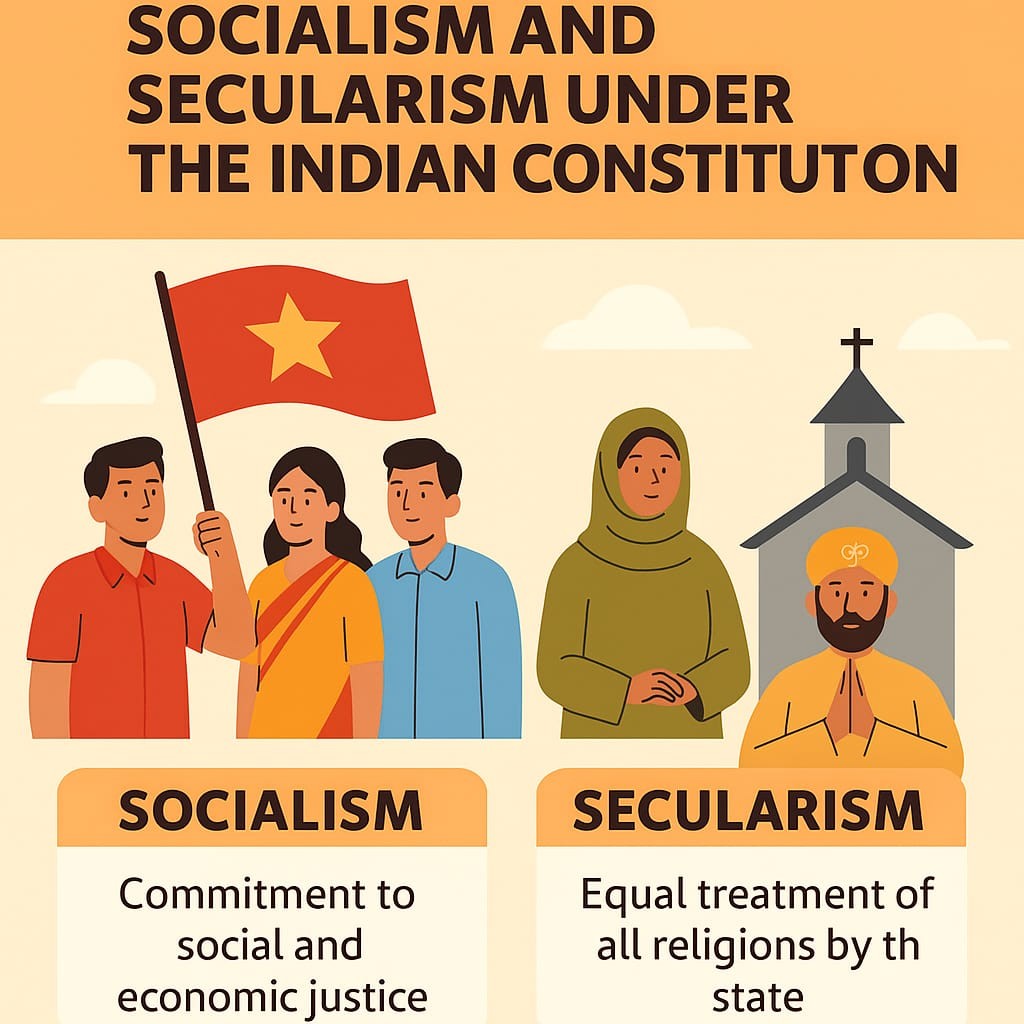
Secularism in the Indian Constitution
Elucidating Indian Secularism
- Secularism in India is uniquely contextual.
- In contrast to Western concepts advocating a rigid separation of Church and State, Indian secularism endorses the State’s impartiality towards all religions, hence safeguarding religious freedom and minority rights.
Constitutional Provisions
- Articles 25–28 safeguard the right to freedom of religion, encompassing freedom of conscience and the rights to profess, practice, and propagate religion.
- Article 25(2) permits the State to regulate or limit secular activities linked to religious practices and to enact legislation for social welfare and reform.
- Articles 29 and 30 safeguard the cultural and educational rights of minority groups.
- The Preamble, before the 1976 amendment, guaranteed “liberty of thought, expression, belief, faith, and worship” as well as “fraternity ensuring the dignity of the individual.”
- Secularism is not simply a proclamation but a constitutional doctrine designed to promote unity amidst difference.
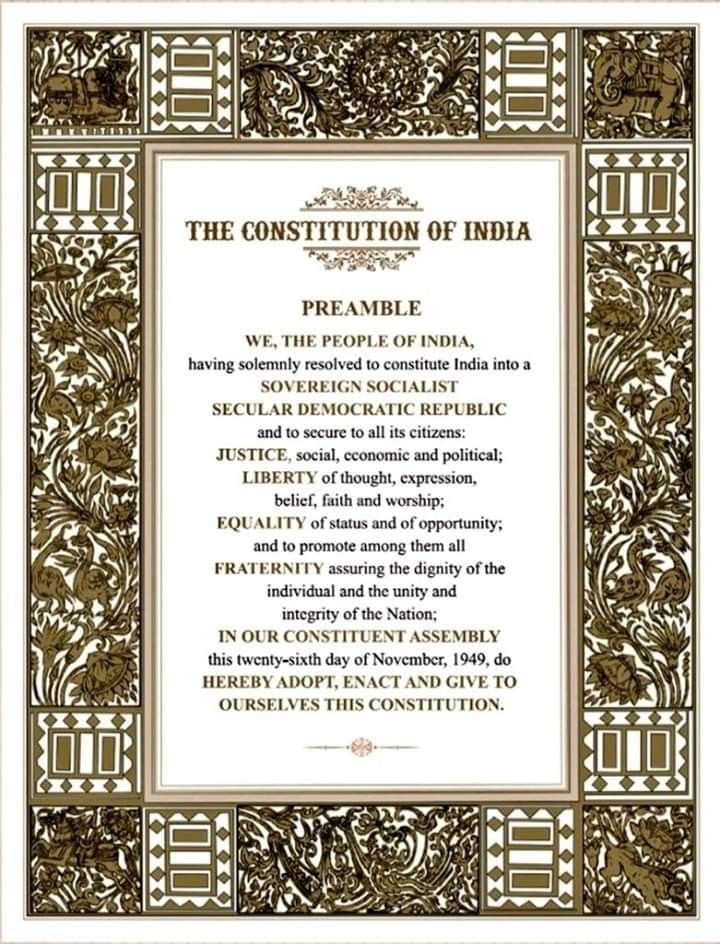
Significance and Recent Developments
1. Rising Threats and Political Discourses
- Recent years have witnessed intellectual and political efforts to challenge the necessity of socialism and secularism in the Constitution.
- Demands by RSS leaders to eliminate these expressions from the Preamble, purportedly to “reverse” the legacy of the Emergency period, expose a broader intent to subvert the Constitution’s inclusive and pluralistic ideals.
- The assertion that socialism and secularism were “imposed” disregards the Objective Resolution proposed by Jawaharlal Nehru in 1946 and the discussions of the Constituent Assembly, which unequivocally supported these principles.
- The phrase “secular” was utilised in Article 25(2)(a) before the 42nd Amendment.
- These principles have been essential in influencing India’s post-independence development, encompassing land reforms, affirmative action programs, and the safeguarding of minority rights.
- Eliminating them from the Preamble would constitute both symbolic obliteration and institutional degradation.
2. Affirmative Action and Welfare Policies
- Recent government initiatives such as the National Food Security Act, Right to Education Act, Mahatma Gandhi National Rural Employment Guarantee Act (MGNREGA), and Ayushman Bharat health coverage are founded on socialist principles.
- These initiatives seek to mitigate economic disparity and foster human development, by Articles 38 and 39.
- In terms of secularism, judicial interventions regarding religious entry prohibitions, discussions on a uniform civil code, and the safeguarding of minority rights persistently illustrate its dynamic nature.
The Role of the Judiciary in Preserving Socialism and Secularism
Kesavananda Bharati v. State of Kerala (1973)
- This landmark case introduced the Basic Structure Doctrine, which held that while Parliament has the power to amend the Constitution, it cannot alter its basic structure. The values of secularism, socialism, democracy, and the rule of law were declared intrinsic to the Constitution.
- The Constitution grants Parliament and state legislatures in India the authority to enact laws within their respective domains. This power is not inherently absolute.
- The Constitution grants the judiciary the authority to determine the constitutional validity of all laws. The Supreme Court possesses the authority to declare any statute enacted by Parliament or state legislatures invalid or ultra vires if it contravenes any provision of the Constitution.
- Despite this limitation, the founding fathers intended for the Constitution to be a flexible instrument rather than a strict foundation for governing.
- Consequently, Parliament was granted the authority to change the Constitution. Article 368 of the Constitution suggests that Parliament’s amending power is unequivocal and extends to all sections of the document.
- The Supreme Court has consistently restrained the legislative enthusiasm of Parliament since independence. The Supreme Court declared that Parliament cannot distort, harm, or alter the fundamental characteristics of the Constitution under the guise of amending it, in order to uphold the original objectives envisioned by the constitution-makers.
- The term ‘basic structure’ is not present in the Constitution. The Supreme Court acknowledged this concept for the first time in the landmark Kesavananda Bharati case in 1973.
S.R. Bommai v. Union of India (1994)
- The Supreme Court emphatically stated that secularism is part of the basic structure of the Constitution. It declared that any state government acting against secular principles would be deemed unconstitutional.
Indra Sawhney v. Union of India (1992)
- In this case, the judiciary upheld reservations for Other Backwards Classes (OBCs) as a measure to advance social justice, reinforcing the socialist ideals of economic and educational equity.
- Through such decisions, the judiciary has acted as the guardian of constitutional morality, pushing back against majoritarian or exclusivist tendencies.
Aruna Roy v. Union of India (2002)
- The Court affirmed that secularism does not equate to hostility towards religion, but rather entails equal respect for every religion (Sarva Dharma Sambhava). It reiterated that religious pluralism and tolerance are essential to the identity of the Indian State.
Relevance in the International Arena
India and the International Constitutional Community
- India’s dedication to socialism and secularism aligns with its responsibilities under international law, including:
- The Universal Declaration of Human Rights (UDHR) – specifically Articles 1, 2, 18, and 21, which advocate for equality, dignity, and religious liberty.
- India is a signatory to the International Covenant on Civil and Political Rights (ICCPR) and the International Covenant on Economic, Social and Cultural Rights (ICESCR).
- India’s concept of constitutional secularism, reconciling the freedom of religion with social reform, has been referenced internationally, especially in dialogues concerning multiculturalism, minority integration, and postcolonial constitutionalism.
Comparative Perspectives
- Countries like France, Tunisia, and Turkey have faced challenges with increasingly stringent secular frameworks. Conversely, India’s secularism has been inclusive, facilitating coexistence rather than exclusion.
- India’s welfare policies, despite their execution flaws, reflect the Nordic model of economic democracy, prioritising universal healthcare, employment guarantees, and educational rights.
The Non-Negotiable Ideals of the Indian Republic
- The Indian Constitution is a dynamic document that reflects the aspirations and ideals of a diverse, pluralistic, and equitable nation.
- Socialism and secularism are not outdated ideologies or political remnants; they are fundamental philosophical principles of a republic striving to harmonise freedom with justice, diversity with unity, and development with equity.
- Any attempt to undermine or eliminate these values, whether via political strategies, legislative changes, or historical reinterpretation, must be met with constitutional vigilance and public involvement.
- The freedom fight, the Constituent Assembly debates, and the basic structural ideology all underscore the primacy of these objectives.
- B.R. Ambedkar cautioned in his concluding address to the Constituent Assembly that democracy encompasses both institutions and ideas.
- The deterioration of socialism and secularism constitutes not merely an affront to text; it is an assault on the very concept of India.
- In advocating for these ideals, we preserve the essence of the Constitution, the ethos of the independence movement, and the aspiration for a just, egalitarian, and inclusive nation.

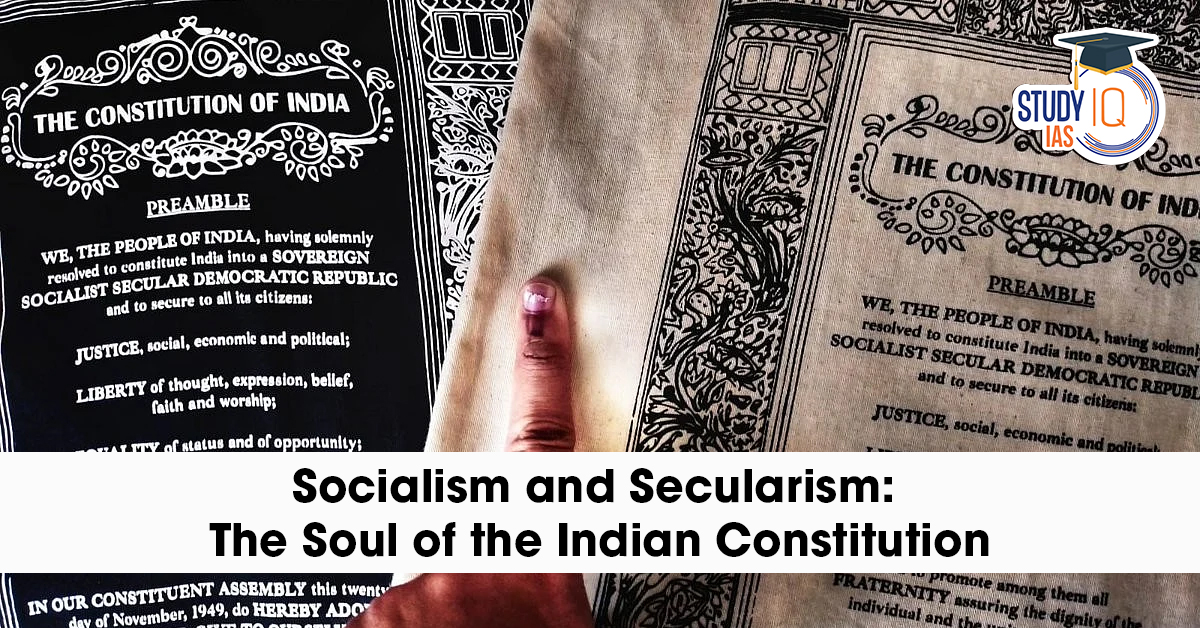
 Warring Couples Cannot Make Courts Their...
Warring Couples Cannot Make Courts Their...
 Tackling Child Trafficking in India: Leg...
Tackling Child Trafficking in India: Leg...
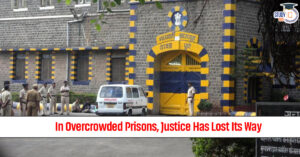 In Overcrowded Prisons, Justice Has Lost...
In Overcrowded Prisons, Justice Has Lost...






